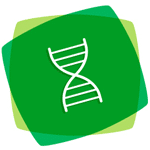Patients
Download our patient information handout
If I want to join this trial, how do I find a participating center?
The study is open at hundreds of sites across the United States. In order to find a center near you, click the link below.
What is the Lung-MAP trial?
Lung-MAP is a large clinical trial, or research study, testing several new treatments for patients who have advanced stage non-small cell lung cancer. In advanced stage patients, the cancer has usually spread to other organs in their body. The Lung-MAP trial is for advanced stage patients whose cancer has continued to grow, even after being treated with standard therapy.
With Lung-MAP, researchers test DNA from each patient’s tumor to see if the patient has a genetic change that may be causing the cancer to grow. If a change is detected in a patient’s tumor, and if they meet other requirements, they may be eligible to get a drug that targets the specific genetic changes in their cancer cells. They will not get a placebo.

Genomic Profile Screening
Patients are screened using a comprehensive genomic profiling platform that looks at over 200 cancer-related genes for genomic alterations. Patients can also be screened for Lung-MAP using the results from genomic testing they have had done in the past.

Sub-Study Assignment
Based on the results of this screening, patients are assigned to whichever one of the sub-studies testing different investigational treatments best suits their genomic profile. If a patient's genetic profile does not match one of the targeted treatment sub-studies, they will be assigned to a non-match substudy.

Innovative Approach
This innovative approach makes it more likely a patient will receive a drug targeted at the genetic profile of their particular tumor while allowing for new therapies in development to be added as the trial progresses.
For some patients, their tumor will not match any of the genetic changes that are being tested in the trial. These patients may be able to join a “non-match” sub-study, or group, in Lung-MAP.
Patients in a non-match sub-study may receive combinations of drugs that may help their immune system fight the cancer cells, or they may receive the standard of care.
The purpose of the Lung-MAP study is to learn if the drugs that target the genetic changes in cancer cells will slow or stop the non-small cell lung cancer from growing. For the non-match sub-studies, researchers want to compare the effects – good and bad – of using combinations of immunotherapy drugs.
Only you and your doctor can decide if Lung-MAP participation is the right choice. The trial is for patients who have been diagnosed with non-small cell lung cancer, and have received at least one dose of chemotherapy. Lung-MAP patients must be at least 18 years old. You should ask your doctor about Lung-MAP.
Your tumor will be tested for certain gene changes. If you already had these tests, your doctor may be able to send your results to the study so that you don’t need to repeat the tests. Based on your test results, and if you meet other requirements, you can participate in a Lung-MAP research sub-study.
If you do not have results from a past genetic test that can be used for the Lung-MAP study, the research team may be able to use tumor tissue from a past biopsy or surgery for new testing. In some cases, though, doctors may need to perform another biopsy.
Yes. Results of genetic testing will be reported to your doctor, who will discuss these results with you.
Lung-MAP is open at sites across the United States. To find a participating site nearby, visit the Lung-MAP page on the ClinicalTrials.gov website. A list of these institutions is also available on the Find a Location page.
Lung-MAP has a few unique features.
First, it’s not a single clinical trial. It’s a group of sub-studies tackling a single disease and testing many treatments for it. These trials are sometimes called “umbrella” or “master protocol” trials. “Lung-MAP” is short for “lung cancer master protocol.”
Lung-MAP is the first large-scale precision medicine trial launched with support from the National Cancer Institute. In precision medicine, doctors use information about the genes, proteins, and other features of a person’s cancer to diagnose and treat the disease with precise treatments that target their cancer. The hope is that these targeted treatments will be more effective than current treatments and have fewer side effects.
Lung-MAP is also special because it brings together many partners. SWOG Cancer Research Network manages the trial in collaboration with the National Cancer Institute, Friends of Cancer Research, and the Foundation for the National Institutes of Health. Other partners include pharmaceutical companies and the genomic analysis company Foundation Medicine.
The wide availability of the trial – with hundreds of sites across the country – gives many patients access in their community to the latest treatments.
